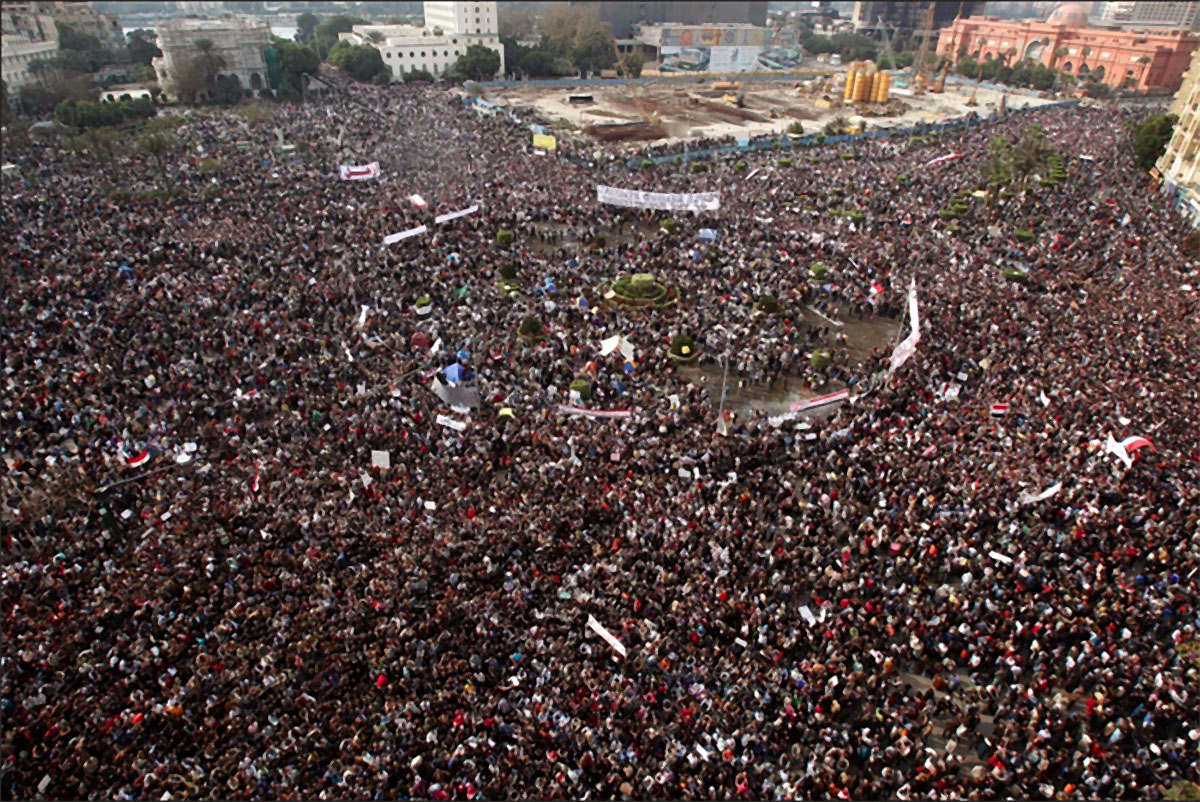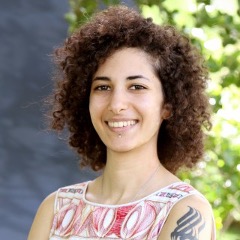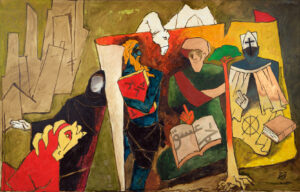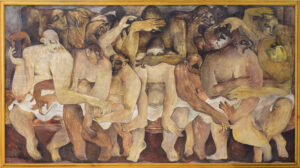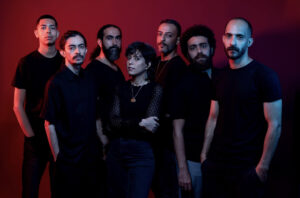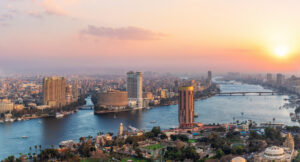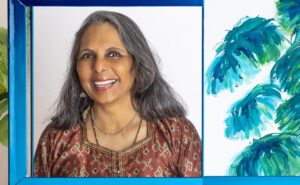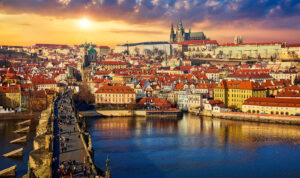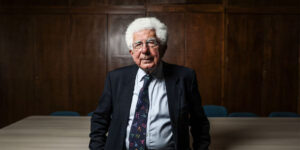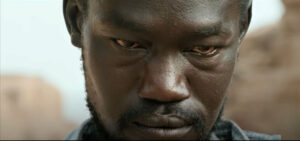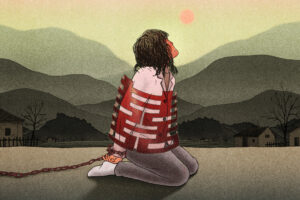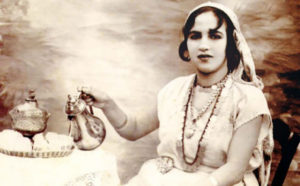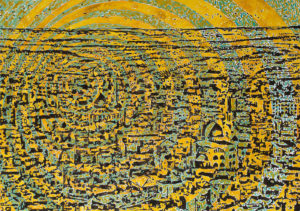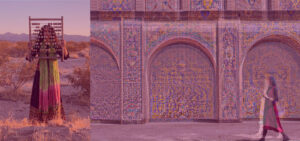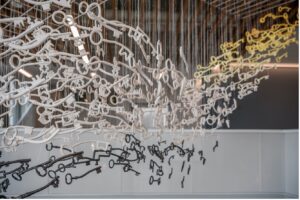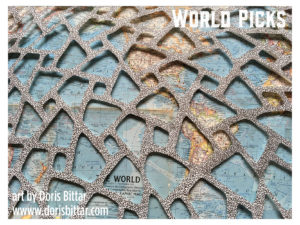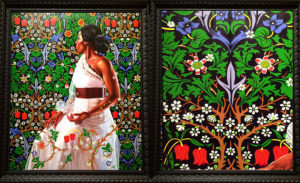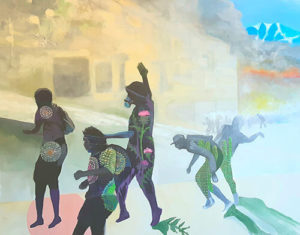I sat alone in my room trying to make sense of the unfolding events. To me, it all seemed to have come out of the blue. I could not understand what was happening, let alone figure out which side to believe, but I loved the disruption.
Lushik Lotus Lee
As a child, I loved the summer in Cairo. With no school, I spent my days running around the seminary where we lived. I would play board games in the air-conditioned classrooms, watch movies on projector screens in the auditorium, and fool around with the instruments in the chapel. Despite the heat, I spent a great deal of time outdoors. In the mornings, before it got scalding hot, I would rollerblade with my neighborhood friends on the smooth-tiled roof of our building. As the sun set and the bustle of the city wound down, we would sometimes try to plant fruits or beans or nuts. Other times, we would grind up the leaves of some trees and pretend to make soup. During the hottest hours of the day, we weren’t usually allowed to go outside except to have water balloon fights. For the most part, I would spend those hours indoors, coloring, reading The Chronicles of Narnia, or watching Friday morning cartoons.
Since the heat always curbed my appetite, I survived, by and large, on mangoes and watermelons; no matter what I was doing, I had a bowl of sweet, juicy, cold fruit. This was back when fruit was still seasonal; you couldn’t get watermelons in winter, you had to pick the seeds out of grapes, and the peaches were small enough to carry half a dozen in your pocket at a time. Sometimes my cousins would visit me and my brother, and our parents would proceed to move the furniture, dress us in our dad’s old shirts, which came down to our knees, cover the floor with newspapers, and we’d have a mango party. Just four kids knee-deep in juicy mangoes, first eating them with a spoon and then scraping them inside-out with our teeth while the juice dripped down our elbows. Those fruits are about the only thing in my childhood that I get nostalgic about.
In the winter of 2011, my frustration with the International General Certificate of Secondary Education (IGCSE) had reached its peak when the second semester of 10th grade began in early January. The IGCSE is a British high school diploma. It was supposed to encourage critical thinking and allow for more student creativity. Instead, our teachers treated it like a system to beat, having us memorize entire subjects and only practice for the tests. No room for thinking or originality, just like my entire education up till then. I was so defeated that I stopped going to school. This was met with outrage from my parents, teachers and neighbors. “You are wasting your future,” my parents shouted outside my bedroom door. “She is being irresponsible,” the teachers told my parents. The neighbors were satisfied with slanted glances aimed at shaming my parents into pushing me into conformity. The biggest problem to them was that I had stepped out of line, not that I wasn’t learning. I knew the third morning I decided to sleep through the schoolbus honks that there was going to be a backlash when everyone realized that I didn’t have a cold, but had decided to drop out of school altogether. This was not an idealistic decision I made one day, but rather the cumulative effect of monotonous classes and the exhaustion that comes from extreme boredom, until one morning I just stopped going to school and didn’t really think about the future. I was expected to have some grand plan, but really it was just a slow fade with no real direction. While the opinions continued to hurl themselves at my locked bedroom door, I stayed inside, content with my books, TV shows and empty Word documents, ready to receive my thoughts without judgement or censorship.
In truth, until the age of 16, I was never into politics or patriotism. I didn’t identify as an Egyptian because until then all I had experienced in Egypt was oppression, inhibition, and discrimination. I was constantly pushed to conform and abandon all dreams and visions of personal autonomy.
I say I was frustrated with the education system, but truthfully I was fed up with everything: people, society, unbelonging, conventions. It all felt stagnant. I was born in Cairo and had lived in this neighborhood since the age of six, save for two years abroad in London. Even though I had moved back when I was nine, five years later I was still struggling to make sense of the world in which I found myself. It was a culture of symbols that I could not decipher. Why was making eye contact with men or adults disrespectful? I thought I was being polite by acknowledging their presence and talking to them and not away from them. I remember an incident in class where I was sitting with one leg crossed over the other, when my teacher got very angry and sent me to stand outside in the hallway (my school’s version of detention). This was a year into my return, and I was baffled to learn that crossing my leg was a sign of disrespect to whomever I was facing. I was not to speak or laugh loudly in public; it wasn’t appropriate for a girl. Clothes held symbolic meaning and were not a matter of comfort or practicality anymore. No tight pants or revealing tops, and preferably long-sleeved shirts.
I was to address all adults with a title of respect, whether I respected them or not. Respect, respect, respect. It was the reason for everything, but it was just there — not earned or lost. You were to be respected because of age, position, or gender. It didn’t matter how you got to your position or whether you were good at what you did. The morality of someone’s actions was beyond judgment if they fell under a respected category. I remember my neighbor’s mom, who had just moved back with her family after five years in Minnesota, calling me out on my utter disrespect for authority and tradition. She would pick apart the connotation of words that had spent only a few weeks on my tongue since I’d been back, to point out my disrespectful attitude. No matter how carefully I pieced together my words or even abandoned mine and adopted hers, I was beyond help. It always baffled me that she was unable to look beyond form and listen to the substance of what I was trying to say. Now I understand that it wasn’t the words but the unapologetic tone and direct manner that offended her. I was acutely aware that something unfair was happening to me in those conversations, but I did not have the words to point out the power dynamic, the rapport de force between an adult and a child. All I knew is that I could not respect her because it felt like she was stepping on me.
The most prominent aspect of those years was the now narrative. Everyone spoke of everything as if it was the only way it was and could be. There was a single narrative, and it left you helpless. Everyone complained, but change was inconceivable. I asked questions, I asked everyone, I asked why. Unfortunately, the most common reply was “that’s the way it is.” I now call it the Es Muss Sein school of thought, after Milan Kundera, because in literature I found the words I needed to make sense of it all. It is so because it must be so.
In truth, until the age of 16, I was never into politics or patriotism. I didn’t identify as an Egyptian because until then all I had experienced in Egypt was oppression, inhibition, and discrimination. I was constantly pushed to conform and abandon all dreams and visions of personal autonomy. I was told to fall in line and rebuked for questioning any authority. I was rejected, scorned, and alienated by society. I had no sense of belonging and the only thing that seemed to define me as an Egyptian was the nationality on my passport.
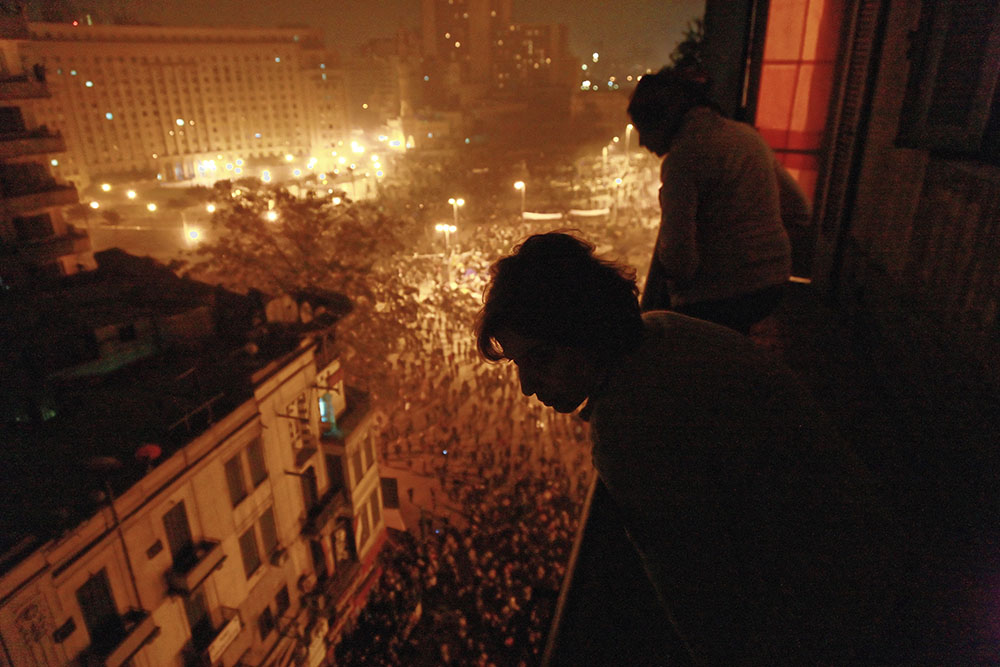
On the morning of the 25th of January, tens of thousands gathered in Tahrir Square (Liberation Square, if translated literally). They were demonstrating against poverty, government corruption, autocratic governance, police brutality, electoral fraud, the state of emergency law, lack of freedom of speech, unemployment, inflation, and low wages. The crowds waved Egyptian and Tunisian flags, echoing chants of Tunisia’s uprising. Protests spread across the country in a matter of hours. Those at home watched their TVs in utter bewilderment. Security and police forces were entirely unprepared but attempted to control the situation using tear gas and water cannons. The state tried to minimize the extent of what was happening, in an attempt to curb the uprising; national media was not reporting on the events at all. Only the next day did the Ministry of the Interior issue a statement blaming the Muslim Brotherhood for fomenting the unrest. For the next 18 days, protesters camped out in the square, creating a micro-society that resembled their vision for the future.
In contrast to the collective ways these happenings were lived and experienced, I sat alone in my room trying to make sense of the unfolding events. To me, it all seemed to have come out of the blue. I could not understand what was happening, let alone figure out which side to believe, but I loved the disruption. The country had stopped working: no school, government offices closed. For the first time I felt in sync with the events happening around me. My feeling of discontentment and exhaustion was being echoed by a million people in Tahrir Square. However, just as the state was in denial about the extent of the upheaval, I still did not comprehend that there was a political history to what I thought was my own personal discontentment.
Despite my initial obliviousness, this national upheaval ignited my political consciousness. I began to read about the ongoing revolution, about my country’s history, about what the rest of the world thought about it. The more history I read, the more I realized it was my own personal history that I was reading. The more politics I read, the more it became clear that the seven years of suppression I had experienced were not only a result of early childhood transitions, but of 30 years of Mubarak’s policies and before them those of the British, the French, and the Ottomans. Slowly, I understood how each law Mubarak introduced shaped culture and why I hadn’t been able to eat watermelon for the past seven summers.
Under Mubarak, the country had seen three decades of dictatorship. In those years, education deteriorated, poverty increased and so did unemployment. The quality of living decreased while wages remained stagnant. Corruption spread; even the constitution was tailored here and there to suit the regime. People were struggling to feed their families. Bribery was commonly used everywhere, from courtroom procedures and electoral processes to obtaining a driver’s license. Dictatorship is more than the control of the government, economy, or the law. It is the control of every aspect of people’s life; it is the control of minds.
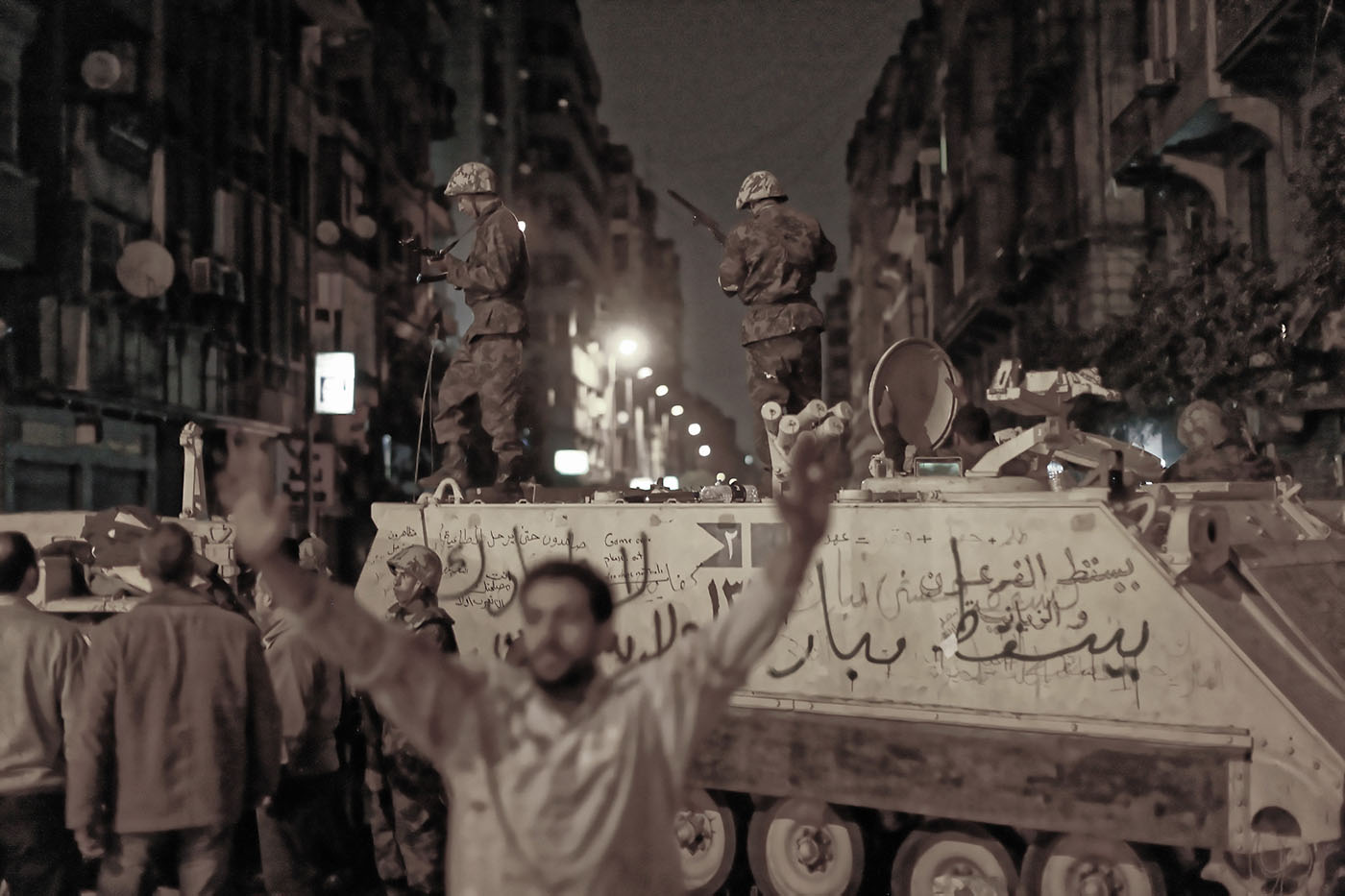
Under dictatorship, you are exposed to one ideal, one opinion, and one possible lifestyle. You are told what to think and believe because the tools you need to form your own opinion are taken away from you. The social, political, and educational influences of Mubarak aimed to demolish all divergence in order to create submissive followers. Not only did he limit the information relayed to the public, but he also ensured that they didn’t seek other sources. Control of state media accomplished this, but so did his educational policies. An emergency law had been in place for 30 years, giving police forces authority to crack down on dissent. Disappearances and torture happened regularly, making people afraid to ask why and, worse yet, forcing them to accept injustice. Eventually, they couldn’t recognize what rights were.
Every day, thoughts and actions were dictated by fear. Fear became the tool used by all authority figures in society, parents and teachers included. This was one of the reasons education became defined as “that which you memorize to throw up on a paper at the end of the year.” We weren’t taught in methods aimed to help us achieve understanding.
My first year in the IGCSE system, I was really into Christopher Paolini’s Eragon, and I remember walking with the book in the hallway on the way to recess when our head teacher walked by, took me aside and asked me why I was carrying this book. I replied with an excited summary of the plot, eager to show her that I was a curious and motivated reader. She interrupted me once she realized that the book wasn’t from our syllabus and rebuked me for bringing it to school.
Inside the classroom, I was perceived as a problematic student because I constantly asked “why?” My male teachers in particular viewed this as a challenge to their authority instead of an inquiry into their area of expertise. After a few months of this, I joined my apathetic peers in the back of the room, where I re-read the books that interested me at the time, like The Chronicles of Narnia. Even in English class, which was my favorite, we were given summarized and watered-down versions of Oliver Twist, Wuthering Heights, Pride and Prejudice, and Hamlet. They said that our language skills couldn’t handle the original versions, so we were left with nothing of substance to analyze. We just memorized character analysis, descriptions of settings, plot summaries, symbolisms, and metaphors for the test.
Educational discourse was framed by the laws against journalism and freedom of speech, which shaped a culture of oppression. Authors and artists were often banned, imprisoned, or driven out of the country. Journalism was but a mere façade devoid of any opinions of value or independent messages. Consequently, teachers and students weren’t allowed to express any political opinions in schools and colleges. Paralleling the world outside the classroom, where everyone was complaining in private but not daring to oppose in public, teachers would blatantly criticize the curriculum and the arbitrary decisions of the Ministry of Education, but insisted that change was just not possible. We were robbed of the ability to analyze or imagine life, and came to view the world as inert. I had been frustrated by my education because we were never allowed to question society and now I understood why.
On the 28th of January, tens of thousands marched from mosques after Friday prayers to the square. The entire country woke up that morning to no internet or mobile connections: total isolation. State television became the only news source, except for those who had satellite channels and could tune into international news, although that proved to be confusing due to the many conflicting reports.
Egypt’s Interior Ministry warned of “decisive measures.” Those in the streets and at home feared the worst. This was the first day of total chaos. Police used tear gas, rubber bullets, and live ammunition. For those in Tahrir, the only news sources were the state security agents they cornered who confirmed, with fear and dread, that protests were breaking out all over the country. A four-hour-long battle between the police and protesters in Tahrir ended with police running away and leaving conscripts in their trucks. Police and security forces withdrew from the streets. Troops were ordered onto the streets but did not interfere with the confrontations between police and protesters. Protestors were weary, as it was unclear whose orders the military was following and what those orders were. On the other hand, the general public was happy with the deployment of the army. To them, it was salvation from the police. News channels magnified that image and gave people a false sense of security.
In the absence of any security forces, the country was being looted. Even prisons were opened and burned down, allegedly on orders from then-Minister of the Interior Habib El Adly. Prison inmates escaped en masse, in what was believed to be a systematic attempt by the government to demonize the protesters by letting the lack of security push the general public into believing that the protestors were rogue criminals or foreign agents. This was the same day that the so-called “pro-Mubarak” protesters in Tahrir appeared, but it was clear, from their organization, numbers, and timing, that they were hired for the job, probably by the Ministry of Interior. That night, Mubarak, whose whereabouts were unknown, made his first address to the nation and pledged to form a new government. His lack of responsiveness to the seriousness of the situation incited anger. People took to the streets holding up shoes as a sign of disrespect.
Mubarak’s apparent delusion made it seem that the revolution came as an utter surprise to him, as if he didn’t know that his privatization policy took away our public beaches and parks, for instance. There wasn’t a single inch of the coastline left to the public. There was nowhere in the city I could go to with my friends without having to spend a fortune. The fruits I used to eat as a child had no land to grow on anymore because huge agricultural tracts had been sold off to private or foreign investors who built hotels, malls, and companies to replace my summer fruits. We began to import products we used to export, like fruit, vegetables, and cotton, so produce stopped being seasonal. Instead of going to the market and buying your fruits from a humble vendor with a small cart, we now went to supermarkets and paid an arm and a leg for mangoes that didn’t taste anything like mangoes. Even the grapes stopped having seeds as I got older because we were importing genetically modified crops. Sadly, some species of mangoes and tomatoes that were grown only on the banks of the Nile Delta became extinct. Watermelon was still around, but the unregulated use of pesticides in an attempt to yield the most from the remaining land made it poisonous, so you could look at it but not eat it anymore.
Mubarak’s surprise echoed mine, but the history that became available to everyone after his resignation revealed an entirely different story, and in retrospect it seemed that after 30 years he had begun to believe his own media channels. The events leading up to the revolution were a combination of long-term and short-term policies. For example, 97% of parliament members at the time were from the ruling National Democratic Party (NDP). The average Egyptian was living on 35 pounds ($6) per month, a figure unchanged since 1984.
The previous summer, a 28-year-old small businessman named Khalid Saeed was dragged from a café and beaten to death by police forces. They claimed that Saeed suffocated in an attempt to swallow a packet of hashish and that he was “wanted for theft, possession of weapons and resisting arrest.” However, according to human rights groups, his death was a retaliation by police forces, as he had posted a video on his blog of police redistributing drugs they had rounded up from a bust. This started a Facebook page which developed into a campaign against police brutality. The page reached a membership of 380,000 people. A week before the uprising, nine Egyptians self-immolated to protest corruption, while in Tunisia a revolution had just succeeded in bringing down Ben Ali. Calls for rallies went out on Facebook and Twitter, with 90,000 people saying they would attend. Such calls in the past had resulted in very small public support and the demonstrations were limited to the familiar faces of political activists, numbering in the hundreds who were usually arrested under false charges. What’s more, the 25th of January had been a national holiday in commemoration of the police since 1952, when 50 police officers were killed while refusing to surrender a police station to British forces. This day is now known as the first day of protests, or “The day of revolt.” In those 18 days of revolution, more than 800 people were killed and 11,000 wounded.
Being an Egyptian took on new meaning. The everyday battle I was facing became a war; they were fighting for me too. That’s what the revolution did! It broke through decades of fear and brought issues into the light.
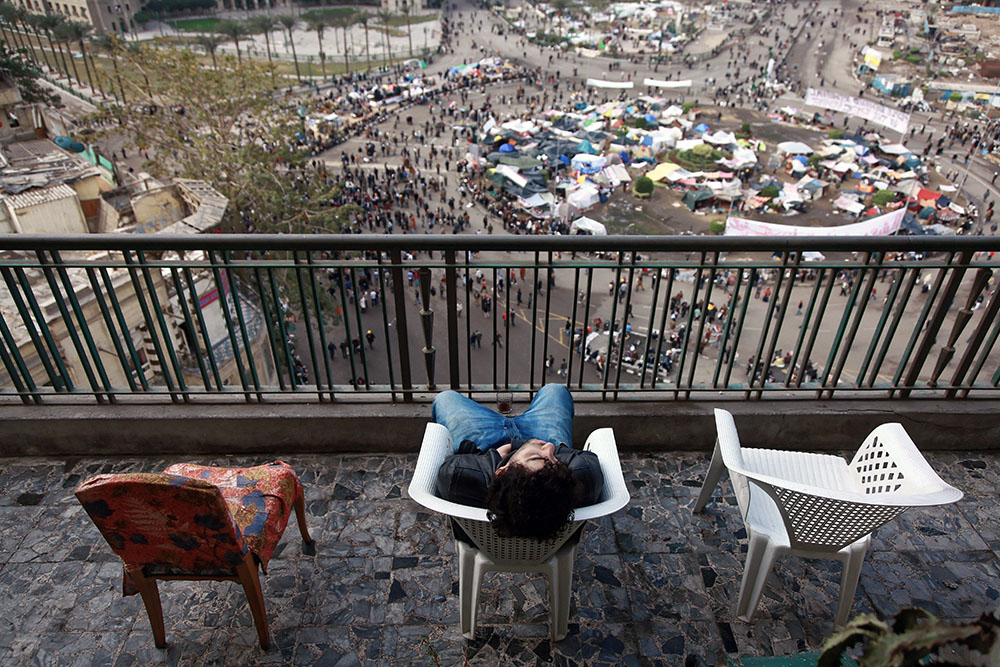
In Egypt, there are people today who say that the revolution accomplished nothing but national unrest. However, the revolution revived my spirit and brought new hope. It called to me, saying you are not alone, you are like us, an Egyptian who has been robbed of her rights for too long! We have also had enough. That’s when I realized that my feelings of oppression and injustice were experienced by people around me for the past 30 years.
Being an Egyptian took on new meaning. The everyday battle I was facing became a war; they were fighting for me too. That’s what the revolution did! It broke through decades of fear and brought issues into the light. People were speaking up. I could speak up. Finally, after so many years of oppression, the chains of injustice were coming loose. We reclaimed our dignity. We reclaimed the word “Egyptian.” We were victims no more. In unraveling the strands of history, I was able to see how the Es Muss Sein school of thought was created, and why. I felt a sense of belonging for the first time. What connected me with other Egyptians was no longer merely my passport or country of birth. It was the experience of suppression and injustice, the feeling of being wronged and not finding the words to speak out against it because they had been censored for years. It was piecing together evidence against something that didn’t exist because they censored it. It was being told you’re a traitor for looking for information. I am not alone anymore; it’s not all in my head anymore. Injustice is my nationality. It was all finally beginning to make sense. It hadn’t always been this way. But now there were a variety of histories that I could believe and tell to counter the now narrative.
While many things became possible only after the revolution, they became so at great cost, both individual and collective. The lives lost, the futures lost, the decades of knowledge and art lost cannot be regained or made up for. In the aftermath of Mubarak’s ouster, we are suffering from a lack of robust political parties, eligible representatives, even a fixed constitution, as well as an informed public. We are also struggling with the surfacing of religious extremism and increased military control in the scramble to fill the power vacuum. While I now understand the society that shaped me, I do not have the energy to continue fighting, and so I have left or, rather, escaped. I am now forever exiled to a life of foreignness. I still hold on to the memory of those mangoes in the midst of summer with fondness, but with no illusion that the land of my childhood is mine at all.



